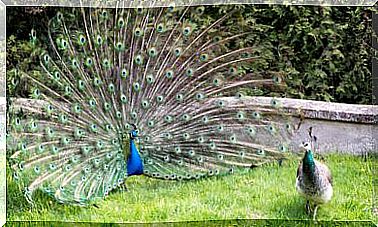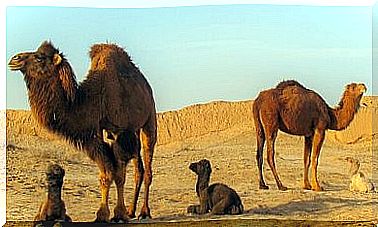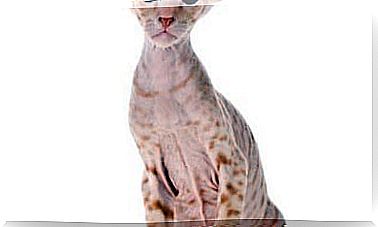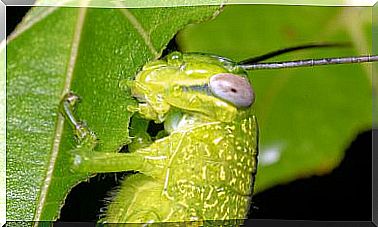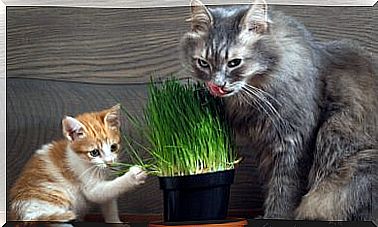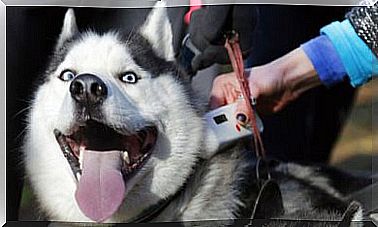Can A Rabbit Eat Carrot?
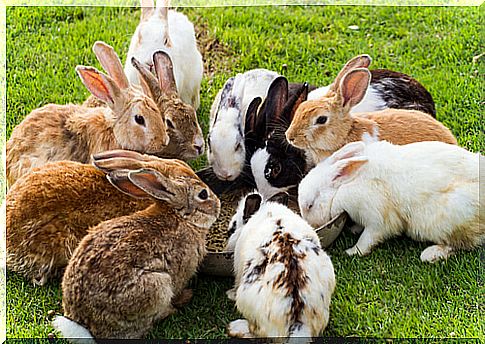
This is not going to be a note about the power that the media has over our thoughts. However, an illustrative example of this is the established idea that the rabbit eats carrots, even as exclusive food. It is often said that a picture is worth a thousand words. And the figure of the mythical rabbit Bugs Bunny , accompanied by this orange vegetable, dominates our imagination about the feeding of these animals. However, the reality is different and indicates that the root of this umbelliferous plant is not, by any means, your pet’s favorite when it comes to feeding and that, if he had a choice, he would opt for its leaves.
Can a rabbit eat carrot in its usual diet?
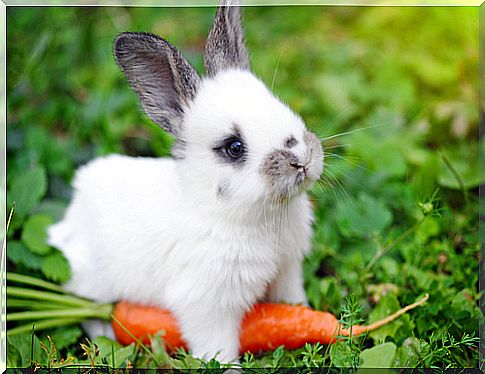
In addition to clarifying that the rabbit does not choose the carrot among its food preferences, another question arises. Is it good to include this ingredient in your diet? The answer is yes, but in the right measure. It is a very sweet food, which can cause various damage to your body – in the liver and intestines – if you eat it in excess, in addition to making you fat in the long term.
What, then, is the proper diet for this animal?
As a good herbivore, your rabbit should be fed only products from the plant world, trying to offer a varied and balanced menu. Keep in mind that any other type of food can cause digestive disorders. Then:
- Hay and feed should be the basis of your daily diet, to which you can incorporate various leafy vegetables. Vegetables – such as carrots – and fruits can also be included, although more occasionally.
- The daily amount of hay that you provide has to be similar to the body volume of your pet. He’s not going to eat it all in one day, don’t worry. It will also use it as a nest, for example.
- The feed should never be the only source of food, since it does not contain the sufficient amount of fiber that it needs. Also, if you provide too much of this balanced food, it will choose to eat it at the expense of other foods necessary for good nutrition.
- You have to know that the digestive system of the rabbit is ready to work all day. For this reason, you must always have food available.
- A fact that must be taken into account is that the feed that you provide should be composed only of pressed grass (trunks). Don’t give him any that contain cereals.
- On a daily basis you can include in your diet, among other vegetables:
- Oak leaf lettuce
- Endive
- Spinach
- Watercress
- Arugula
- Beet, carrot, radish, grape and mulberry leaves
This will provide vitamins, calcium and other essential nutrients.
- More widely, you should offer:
- Zucchini
- Cucumber
- Pear
- Banana
- Medlar
- Apple
- And also carrot, of course
Hay, in addition to being an important source of fiber, serves to maintain the dental health of your pet. On the contrary, the feed – being easy to chew – does not contribute to the necessary wear of your teeth.
Maybe you did not know it but, unlike humans, dogs or cats, rabbit teeth are open root. This means that they grow continuously throughout their life. They do it at the rate of 2 to 3 millimeters per week. Hence the importance of providing food such as hay, to ensure the wear of their teeth and prevent their overgrowth.
Demolishing myths
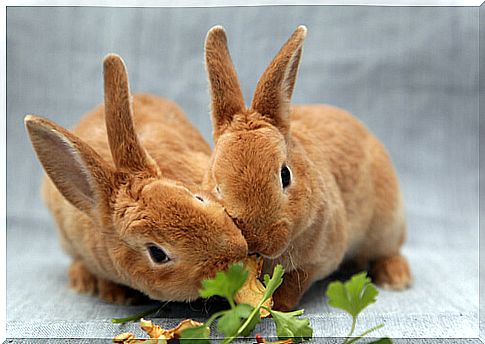
But let’s go back to the beginning. Where did the myth that the rabbit loves carrots come from? Everything seems to indicate that Clark Gable is the culprit. In 1934 he starred in the movie It Happened One Night . In one of the scenes, this old-time hunk was chewing on a carrot. The cartoonists of Bugs Bunny were very amused and decided to parody it by giving the famous rabbit his new and inseparable companion.
The truth is that, if you want your pet to have a healthy and balanced diet, you must follow the advice of veterinarians and not be influenced by a myth imposed from the movies and television, however innocent and friendly it may seem. Keep this in mind: if you choose to feed your rabbit only carrots, you will be causing serious nutritional deficits.
